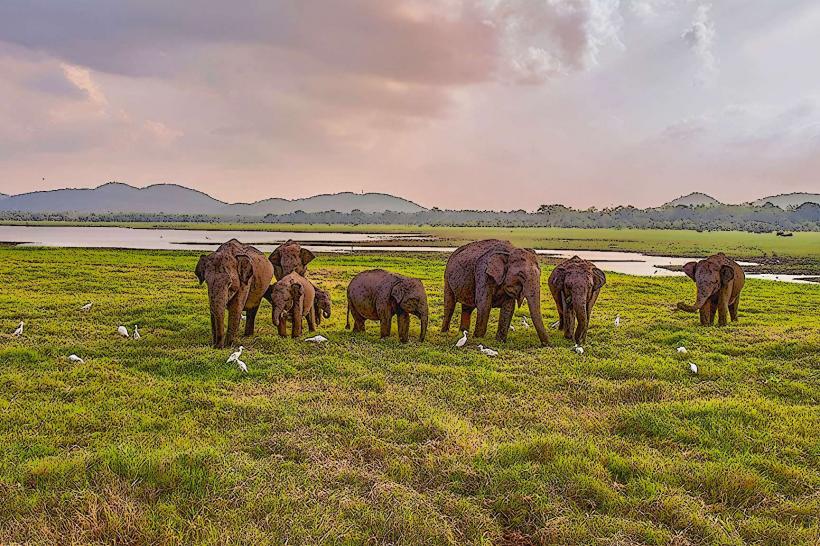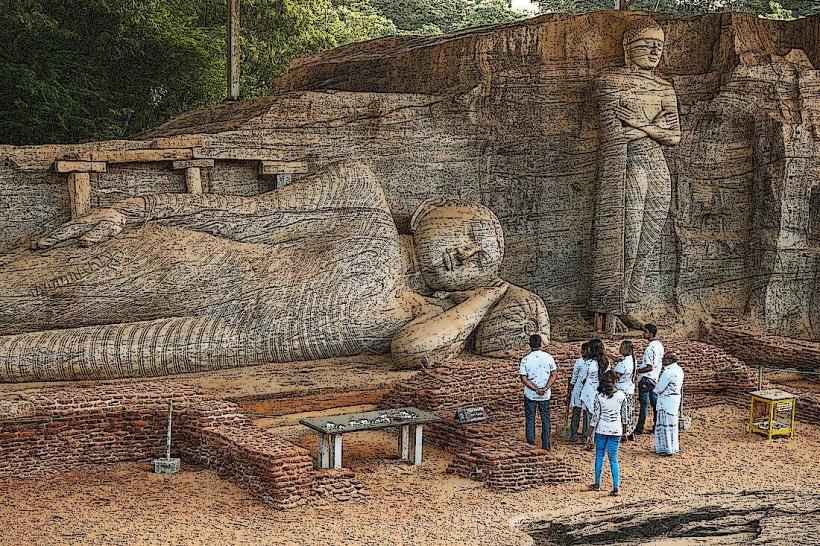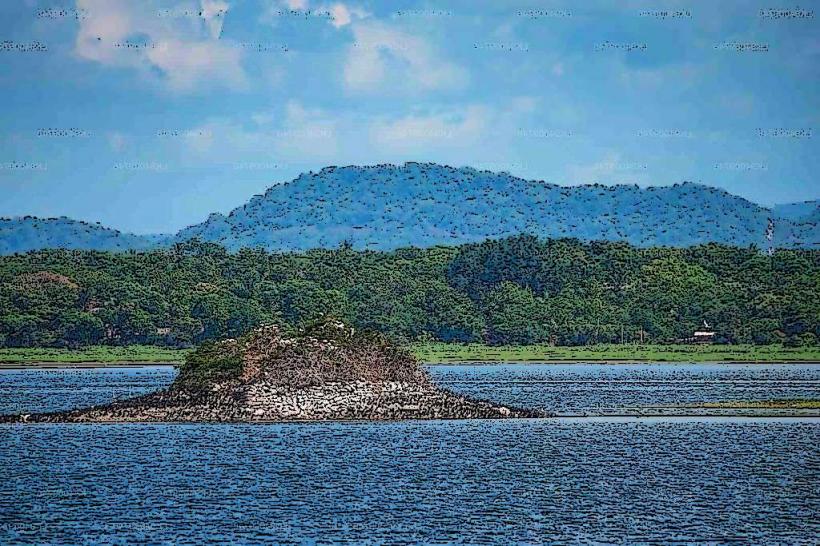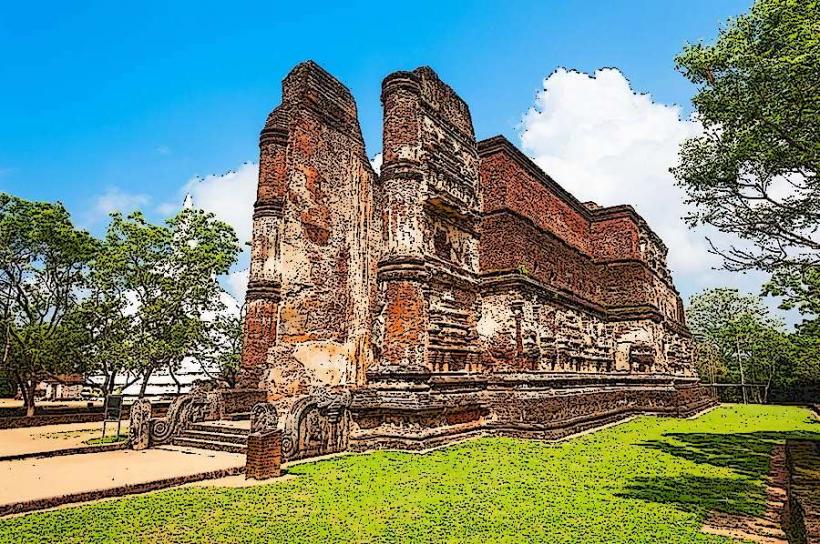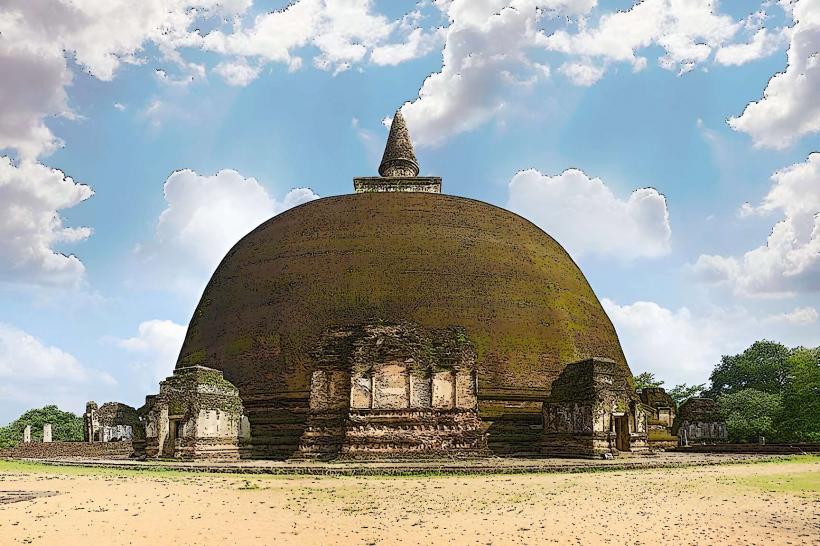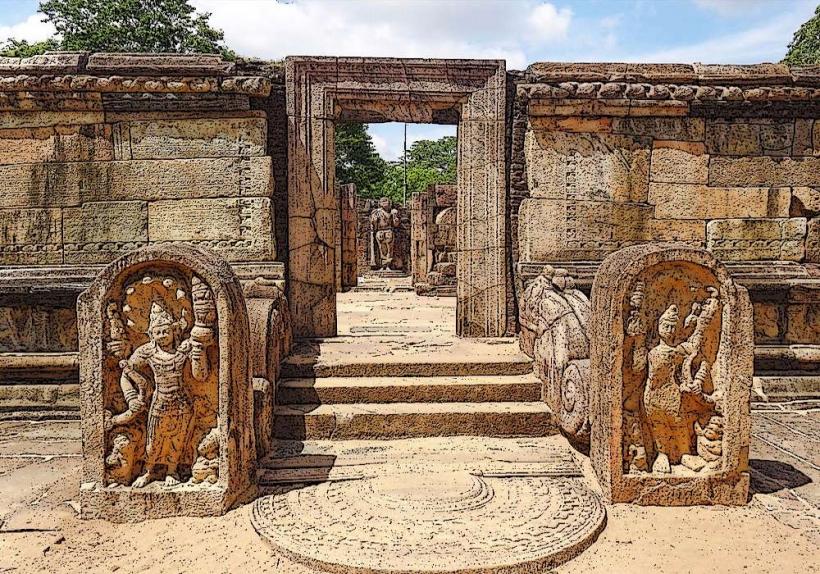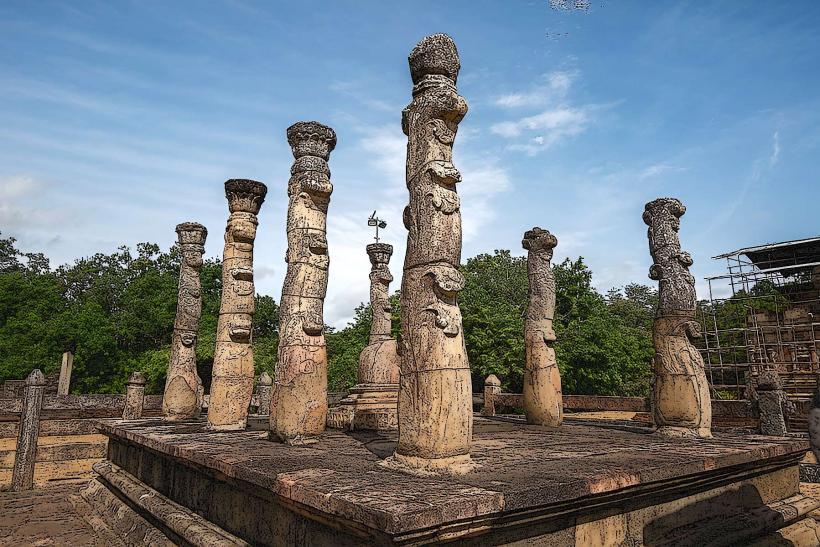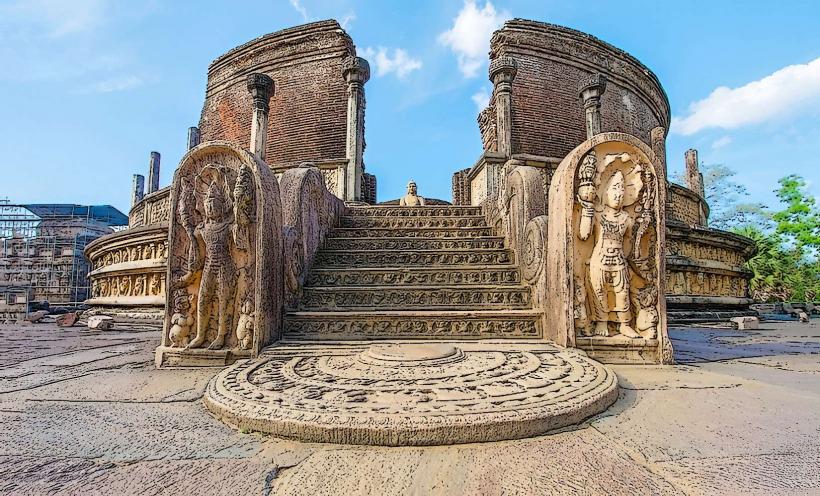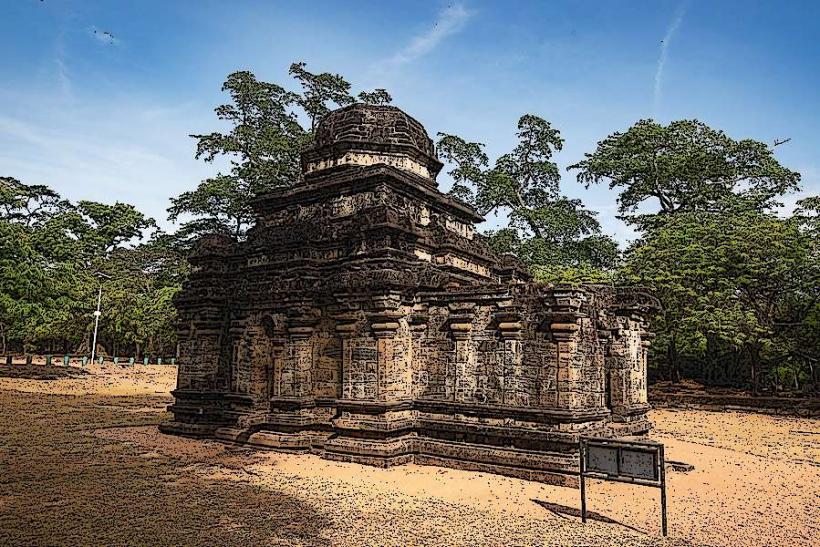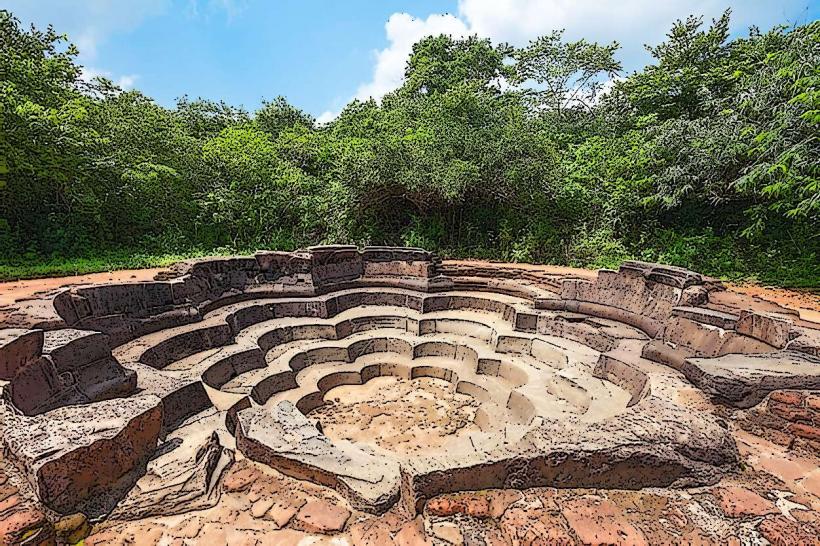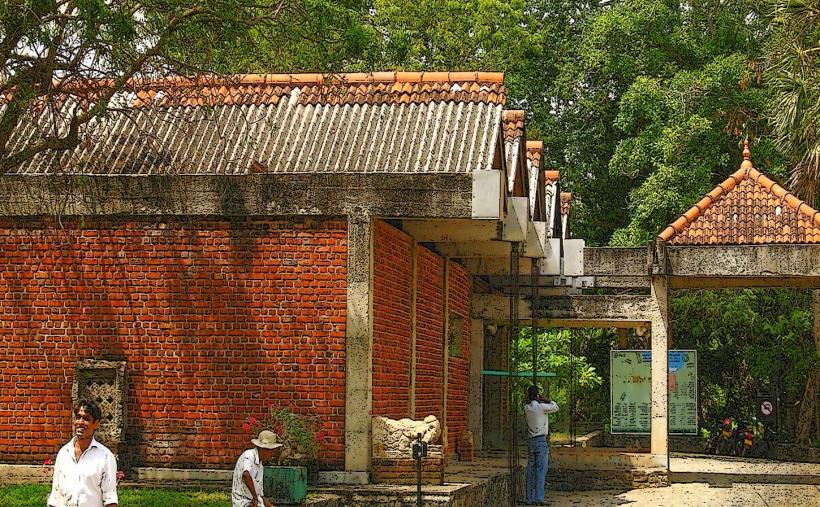Information
City: PolonnaruwaCountry: Sri Lanka
Continent: Asia
Polonnaruwa, Sri Lanka, Asia
Polonnaruwa serves as the capital of the Polonnaruwa District in the North Central Province and was the second established capital of ancient Sri Lanka. It is a UNESCO World Heritage site, representing the peak of medieval Sri Lankan civilization between the 11th and 13th centuries.
Historical Timeline
Following the destruction of Anuradhapura in 993 CE, the Chola invaders established Polonnaruwa as their capital. The city reached its zenith under King Vijayabahu I, who expelled the Cholas in 1070, and later King Parakramabahu I, whose massive infrastructure projects defined the era. The city was eventually abandoned in the 13th century following further invasions and the collapse of the complex irrigation systems, leading to the relocation of the capital to the southwest.
Demographics & Population
The modern town has a population of approximately 14,000, while the wider district is a primary agricultural zone. The demographic is predominantly Sinhalese Buddhist. The economy is centered on rice production and tourism.
Urban Layout & Key Districts
The city is organized into two distinct sectors:
The Ancient City (The Archaeological Park): A concentrated area of ruins, temples, and palaces located north of the modern town.
The New Town (Kaduruwela): The commercial and residential hub containing the main bus stand and railway station.
Parakrama Samudra: A massive man-made reservoir that borders the western edge of the city.
Top Landmarks
Gal Vihara: A world-renowned rock temple featuring four massive Buddha statues carved from a single granite cliff, including a 14-meter reclining Buddha.
The Quadrangle (Dalada Maluawa): The most sacred area of the city, containing the Vatadage (circular relic house) and the Hatadage.
The Royal Palace (Vejayanta Pasada): The ruins of Parakramabahu’s palace, which reportedly stood seven stories high.
Rankot Vihara: The largest stupa in Polonnaruwa, standing at $54$ meters, modeled after the structures in Anuradhapura.
Lankatilaka Image House: A colossal brick structure with $17$-meter high walls housing a headless standing Buddha.
Transportation Network
Rail: Polonnaruwa is served by the Batticaloa Line; the station is located in Kaduruwela.
Road: Approximately 220 km from Colombo. It is a major node in the "Cultural Triangle."
Public Transit: Bicycles are the standard method for touring the ancient city due to the flat terrain. Tuk-tuks are used for transit between the New Town and the ruins.
Safety & "Red Zones"
Polonnaruwa is safe but presents specific environmental hazards.
Wild Elephants: The city is flanked by national parks; elephants frequently cross the main roads at night. Do not walk or cycle between the ancient city and the parks after 18:00.
Heat: The dry-zone heat is intense; exploration is best conducted before 11:00 or after 15:30.
Lake Safety: Do not swim in the Parakrama Samudra or local canals due to crocodiles and strong irrigation currents.
Digital & Financial Infrastructure
4G/LTE coverage is robust. Fiber-optic internet is available in most guest houses. The currency is the Sri Lankan Rupee (LKR). ATMs (Commercial Bank, Sampath Bank) are located in the New Town/Kaduruwela area. Credit cards are accepted for the official archaeological site entry fee.
Climate & Air Quality
Tropical Dry Zone climate. It is characterized by high temperatures and low rainfall outside of the monsoon months. Air quality is excellent, influenced by the lack of heavy industry and the cooling effect of the massive reservoirs.
Culture & Social Norms
The site is treated with religious reverence.
Temple Etiquette: Shoulders and knees must be covered. Hats and shoes must be removed when entering temple platforms.
Photography: Never pose with your back to a Buddha statue. Do not touch or lean on ancient stone carvings.
Alcohol: Strictly prohibited within the archaeological park.
Local Cost Index (LKR)
1 Espresso: 600–900 LKR (Hotel only)
1 Standard Lunch: 450–1,100 LKR
1 Full-Day Bicycle Rental: 1,000–1,500 LKR
1 Entrance Ticket (Foreign National): Approx. 30 USD (payable in LKR)
Nearby Day Trips
Minneriya & Kaudulla National Parks: 30–45 minutes west; the best locations in Asia to see large herds of wild elephants.
Dimbulagala Rock Temple: 30 minutes southeast; an ancient forest hermitage.
Somawathiya Chaitya: 1 hour northeast; a remote stupa located within a wildlife sanctuary.
Facts & Legends
Legend says King Parakramabahu I declared that "not even a single drop of water from the rain should flow into the ocean without being useful to man," leading to the creation of the Parakrama Samudra (Sea of Parakrama), which is so large it creates its own waves. A geographic fact: The ancient city’s ruins are significantly more compact and better preserved than those of Anuradhapura, allowing for comprehensive viewing within a single day.

